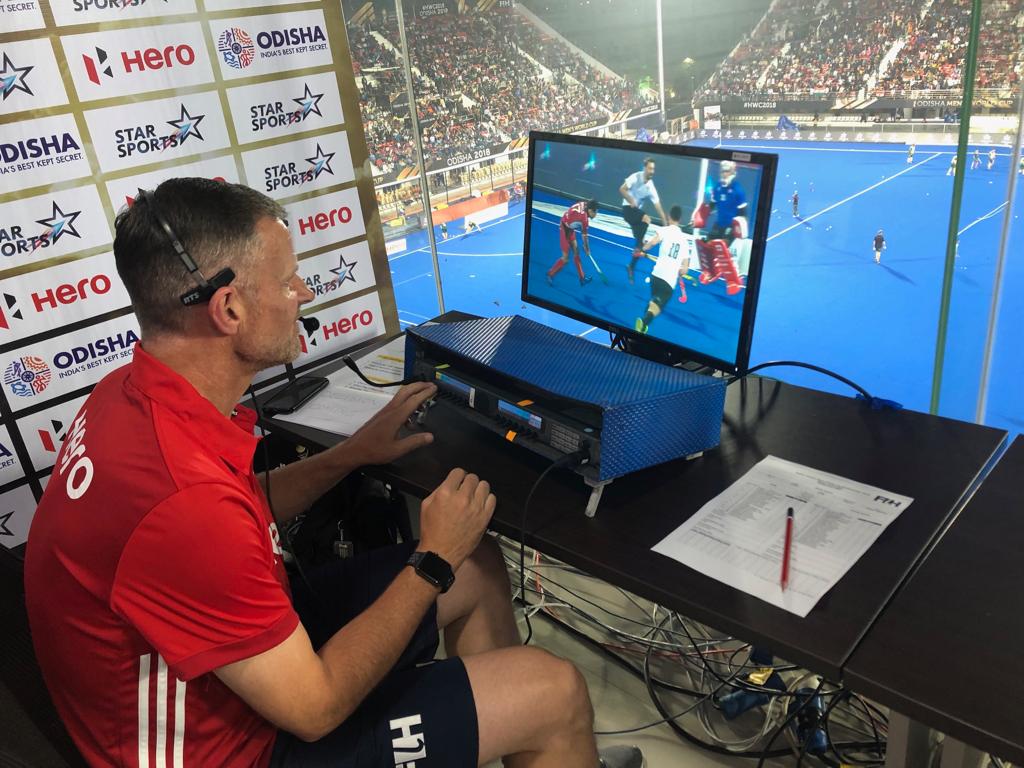Goal Setting: How to Achieve Your Dreams
 You’ve got a dream. A BIG dream. I get it. I feel you.
You’ve got a dream. A BIG dream. I get it. I feel you.
But let me ask you a question: What are you doing to work towards that dream?
You see, having a dream is great. But having a PLAN is better! Ambition only gets you halfway there.
It’s important to have goals stepped out so that you can (a) break it down into manageable steps and (b) track your progress. This is how you really achieve your goals and dreams. By tackling them in steps. Climbing the ladder one rung at a time until you get to where you want to be. You don’t get there by staring at your dream from a distance, wishing you had it.
So tell me, how much do you want it? And how can you get there?
Well, I can’t help you with the first question – you have to look inside yourself and figure out how much you want it. But once you’ve determined that you really do want to achieve your goal and you’re willing to put in the hard work to get there, I CAN help you with the second question!
So how do you achieve your dream?
By having SMART goals.
Goal Setting: How to Achieve Your Dreams

Why goal setting is important.
Firstly, let’s tackle the scepticism buried inside of you. Yes, I know it’s there. I can hear the little voice in your ear saying “eh, you’ll achieve your dream if you just keep going”, or that other voice that says “OMG, goal setting is SO last season”.
You know who that voice belongs to? People who don’t achieve their goals. People who don’t reach their full potential. You know why? Because those people don’t actually REALLY want their dream. It’s a nice thing for them to daydream about, but when push comes to shove, they don’t really want it. They’re not willing to put in the hard work.
So tell me, how much do you want to achieve your goal? Are you willing to put in the effort?
If the answer is yes, then awesome! Let’s plan out a way for you to get there superstar!
You see, most of us who look at people who are where we want to be, only see the success. We see the dream. The goal. What people don’t see is the effort it takes to get there. This is called the iceberg illusion.

People don’t see the larger chunk under the water that made the tip of the iceberg (the success) visible. The dedication required to get there. The hard work. The persistence. The failure and sacrifice and disappointment that was faced along the way.
And it will happen. It happens to everyone.
THIS is one of the reasons setting goals and stepping them out is so important.
What are the benefits of setting goals?
- To enhance motivation
- To help plan and monitor progress
- To focus attention and effort
- To foster new strategies
Goal setting keeps you accountable. It helps you track your progress towards your dream. It breaks it down into manageable checkpoints that you can work your way through. Because sometimes the big picture seems so far off, so unattainable. That doesn’t mean you shouldn’t have it as a dream! Oh no! But it means breaking it down into chunks, which keeps you motivated and helps you get there. Because sometimes achieving your dream can take a while…
It also helps when the going gets tough. When things don’t go your way. When you have to work hard. When you are faced with disappointment. Knowing what your goals are, what the next step is, and most importantly, why you are doing this, helps you to get back on the horse and give it another crack. Every journey is a rollercoaster. There are going to be ups and downs. Knowing what your working towards, and how, and why makes the downs not so hard.
And you know what, it certainly makes those cold, winter workouts that much better when you have a burning desire to achieve your goal. You know why you’re leaving your warm bed to go sweat it out. Because you’ve got a badge to earn. A fitness test to pass. A tournament to prepare for.
And you’re going to be the best you can be, damn it.
How to set goals
Now, I know what you’re thinking – I know how to set a goal. I have a dream. That’s my goal. I’m going to work towards it until I get there. Hmmm, well, yes… but also no.
It’s much easier to stay motivated, to work at it, if you break it down into achievable chunks. This lets you track your progress, and pat yourself on the back when you pass a milestone. Because hey, we can all use another reason to celebrate!
This is where SMART goals come in. Yes, I’ve got an acronym coming for ya:
SMART goals
Being SMART about goal setting reminds you that your goals should be:
Specific:
Set difficult, but realistic goals that are clearly stated.
Measurable:
Set goals so your progress can be measured.
Adjustable:
Goals, or their timelines, may need to be adjusted due to things such as injury or sickness. Or you may have set goals that were, in hindsight, too easy or too hard. You should review and adjust if needed.
Realistic:
Know your limitations, but set goals that are challenging. Setting goals that are too hard sets you up for failure, but setting goals that are too easy doesn’t stretch your abilities.
Timely:
Set target dates for achieving your goals. Again, these should be challenging but realistic.

It’s also important to break your goals down, using the SMART method multiple times. Have a long term, a medium term and a short term goal. Or multiples of these! That is, you have your ultimate (or dream) goal, but to reach it you must break it down into smaller steps. This is important for a few reasons. Firstly, it allows you to monitor your progress. Do you need to work harder or modify the plan or how you’re training? Secondly, achieving these short term goals provides you with a reward for your effort and hard work! This then increases your confidence that you can achieve the next short term goal, which keeps the motivation train going!
You can do this with literally EVERYTHING you are working towards (even non-umpiring stuff!). Whatever level you’re at, whatever your goal is, take a moment to write it down now. Go on, do it. What is your goal? Now break it down into smaller, achievable, trackable, time orientated goals.
Get that pen and paper. Writing it down makes it REAL. It makes it serious. Go on, I’ll wait.
Your goal can be anything! Umpire a final. Run a level 10 on the beep test (read about how to improve your fitness or nail that fitness test). Obtain your Level 1 accreditation. Umpire your first premier league game. Get your international badge. Be better at mental imagery.
Your goal is specific to YOU and what you want to achieve.

If you’re struggling, here’s an example:
Long term goal: To umpire at the Olympics one day.
Ask yourself the question ‘what do I need to do to get there’? Obviously this depends on the level you’re at as to how far you need to go. Let’s say you’re a junior umpire just starting to umpire higher level games in your association. To umpire at the Olympics one day you’ll need to work your way up the junior age group tournaments, then on to your open-age national league, get your international badge, then progress up the ranks (check out this post for more info on rankings and the national and international umpiring pathways). So what is the first goal to go down this path? Well, you want to go to, say, the U15 Nationals first. What do you need to do to get there? Umpire high level games often and be assessed by a coach? Nominated by someone? Find out, then make it happen.
Mid-term goal: Go to a national tournament
When do you want to do this by? Is there anything special you need to work on to make this happen? What can you do to give yourself the best chance? (i.e. do you need to work on game management? Or communicating with players?).
Short term goal: Umpire top level games regularly by the end of the season
How do you make this happen? What do you need to work on? Find out how to get someone out to assess you and get someone out to coach you on the things you’re working on.
Goal for next game: Work on maintaining concentration/mental fitness (see my post on mental fitness here).
What exactly? How will you work on it? Be specific.
Monitor your progress
Make sure you are regularly tracking your progress towards your goals, and adjusting them if needs be. You can adjust the time line or develop a ‘Plan B’ if things aren’t tracking along quite how you imagined. We all face road blocks from time-to-time! That doesn’t mean you have to give up on your goal though, it just means you have to be adaptable, flexible.
Self reflection and evaluation is such an important tool in life – you can’t rely on others to keep you on track. This is YOUR dream, your goal. Keep yourself accountable. The best way to do this is different for everyone. Find something that works for you! You can put some images or words up on your wall or fridge to remind you every morning, you can schedule a regular time to sit down with yourself so that you can self-reflect on how things are going, you can keep a diary, or write out your goals and timelines on a monthly or yearly planner. Find your jam. Just make sure it’s a solid, regular thing to keep you motivated and accountable.
When things don’t go to plan…

Setting goals towards your dream is a great way to keep you focused and keep progress manageable whilst you work towards achieving your thing. However, sometimes things don’t always go to plan, and that’s ok! Maybe you didn’t reach a milestone in time, or maybe injury or illness held you back. Maybe life just got in the way. Or maybe you didn’t get selected/promoted.
Whatever it is, that doesn’t mean the end of your dream! It can be really upsetting and frustrating when things don’t go the way you wanted, but don’t give up. Take the time to understand why you’re feeling the way you are, and think if there is anything you can do to avoid the same thing happening next time. Then, re-evaluate how much you want your goal. Take some time away if you need to refresh. Sometimes stepping back allows us to realise exactly how much something means to us. When, and if, you’re ready to get back at it, sit down and re-plan the path to your achieving your goal. This doesn’t mean you’re starting again, it just means your adapting the plan. And this is a very important skill for everyone!
In Summary:
Things to do:
- Setting goals keeps you motivated, focused and accountable
- Set SMART goals
- Monitor your progress
Things to avoid:
- Setting goals that are not specific, realistic or measurable
- Setting too many goals at once
- Not monitoring your progress
Go get ‘em tiger!

If you think other people might find this useful, please share it around through social media or by using the buttons below 🙂 Sign up for the newsletter to get new posts delivered straight to your inbox, and follow me on Facebook, Instagram and Pinterest for extra tips, tricks and behind the scenes banter!




You must be logged in to post a comment.